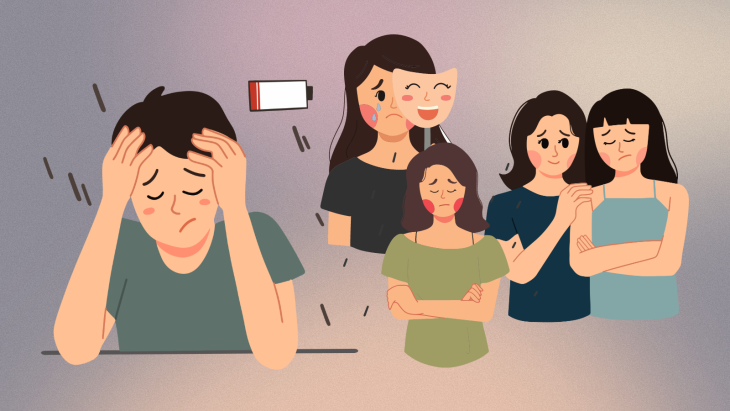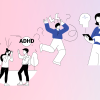Recent Posts
Most Popular
What are the signs that I am avoiding grief? How avoiding processing loss impacts mental health

If you have lost something important to you, you know the feeling of grieving. You know the many faces of denial, anger, bargaining, depression and acceptance.
Contrary to what many might think, these stages of grieving were created by Elizabeth Kubler-Ross to give a name to the common human experience of dealing with loss. These “stages” are our guide in understanding the different ways we process our emotions. But the truth of the matter is that we go through our experience of loss in our own unique way.
On the other hand, there seems to be signs that our process of grieving is considered incomplete. According to experts, this incomplete grief occurs when we distract ourselves to the point of busyness, or through the use of harmful methods, so that we can avoid facing the pain, confusion, anger, and sadness. As a result, the emotions are covered up and hiding beneath a surface of “calm or acceptance.”
Because our grief stays unprocessed, we also do not learn the healthy ways we can come to terms of living with some painful feelings. Instead, they come up as unfinished business.
What are the signs that might suggest incomplete grief?
The condition of our mind, emotional, and spiritual state can manifest themselves in certain behavioral symptoms. The more of these behaviors we observe, the bigger the chance feelings of grief have not yet been processed.
1. Seemingly stuck in a certain emotion (sadness, depression, anger, numbness, etc) when it comes to the loss.
2. Consistently displaying signs of low-level anger for a long period of time, about things unrelated to the loss. These include being very critical or pessimistic, engaging in short moments of rage towards others while driving or in public places, being sarcastic, voice becoming too monotonous or controlled, muscle twitching.
3. Expressing that the loss is unimportant to them. People with incomplete grief would deny the importance of the loss by saying, “I am alright. I am not affected that much. It was not important.”
4. Physical symptoms showing lack of energy for a long time. These include waking up tired, being apathetic and weak all day. Interestingly, medical professionals have also noticed people who have recurring illnesses like stomach problems, asthma, headache, body pains, nightmares, etc can be connected to unprocessed emotions of grief.
5. Engaging in activities that one becomes addicted to. They may even include things that appear healthy or beneficial for the person like going to the gym, cleaning the house, reading, etc. Others include engaging in the use of harmful substances like drugs or regulated medication. Also, some would enter into an unhealthy relationship that ends up being toxic.
6. Consistently avoiding topics or things that would remind them of the loss. People who have incomplete grieving may avoid talking about topics related to the loss, going to the places that remind them of it, and seeing people and doing activities that have a connection to the loss.
7. Either creating shrines about the cause of grief or completely eliminating items related to the loss. The sign that it may be incomplete grief is the excessiveness of enshrining the loss or eliminating it from memory.
More often than not, people having trouble with grief are unconscious that they have these signs because deep feelings are repressed.
We can use these as guidelines to help us assess ourselves and our loved ones who are grieving. Knowing them can make us more ready to possibly seek professional help for healthier grieving. Some mental health professionals specialize in helping people with the grieving process and in assisting them towards a healthier path.
We grieve in a unique way, and as we process it little by little over a span of time, we come to a more peaceful place where the pain and missing the person/thing/ situation are still there, but we are able to learn to live with these feelings.
Get the latest and most comprehensive list of mental health and health care job opportunities and start a fulfilling career in the medical field!








Comments